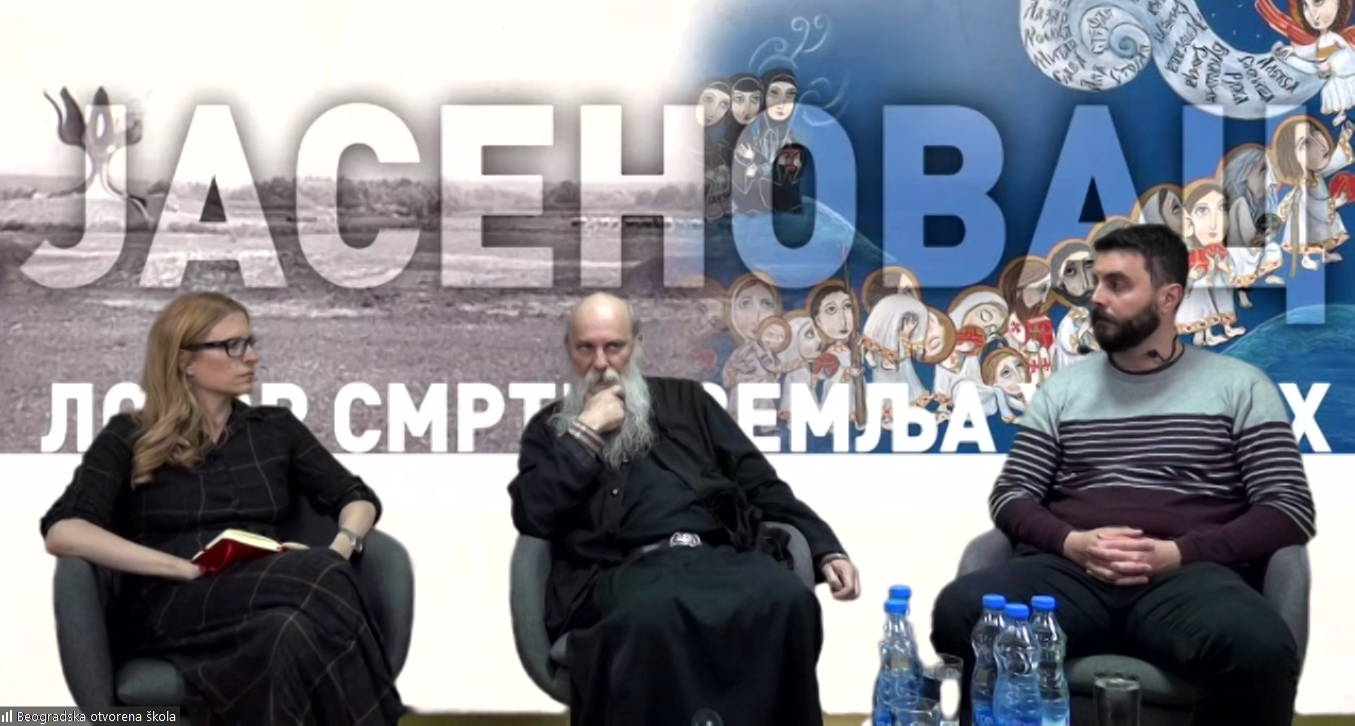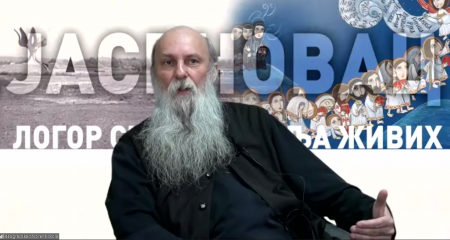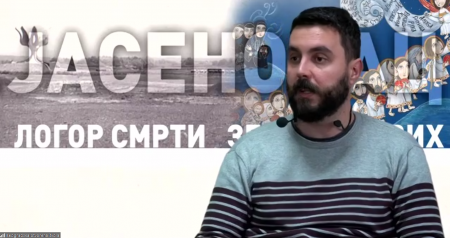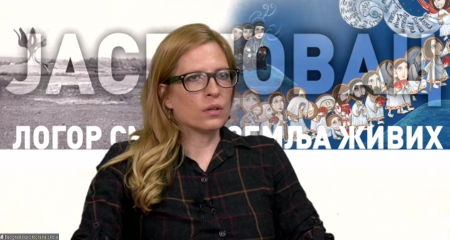On April 14, 2021, an online panel Jasenovac - the camp of death, the land of the living was held, commemorating the 76th anniversary of the breakthrough of prisoners from the concentration camp.
Ivana Bartulovic Ostojic, director of the International Cooperation Office of the Eparchy of Slavonia, moderated the panel. With His Grace Bishop of Pakrac and Slavonia Jovan and Stefan Radojkovic, Research Associate at Museum of Genocide Victims, she talked about the importance of commemoration of the Jasenovac victims, the scientific approach to the subject, and the positive example and role model of Yad Vashem remembrance centre in Israel.
His Grace Bishop Jovan, who is the president of the Jasenovac Board of the Serbian Orthodox Church, pointed out that the Jasenovac concentration and extermination camp was unique as it was not liberated by an army, but rather the prisoners themselves made a successful breakthrough. He talked about the significance of the Memorial Centre and monastery of Jasenovac. Speaking about Yad Vashem, he stressed that it is primary an archive and scientific centre, which is the key approach to the research of this subject.
Stefan Radojkovic presented the work of the Museum of Genocide Victim, which unfortunately does not have an exhibition space, but compensates that with guest exhibitions and scientific work. He talked about the nature of the Independent State of Croatia, he mentioned that this puppet state had many independent and functioning institutions, such as the military, police, railroad and post service, which all had a significant role in the system of concentration camps.
During the discussion with the audience, the panellists compared the research on this subject in the post-Yugoslav space with the international research, as well as the differences in dealing with this topic today and in SFR Yugoslavia.




